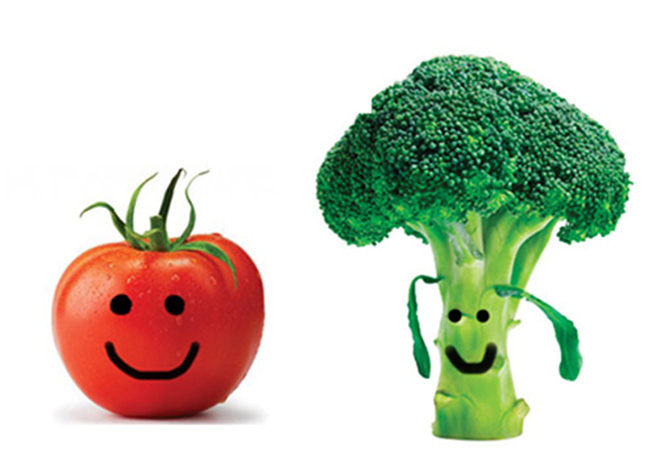Should We Eat Like Our Caveman Ancestors?
The Paleolithic (Paleo) diet, also called the "Caveman" or "Stone Age" diet, centers around the idea that if we eat like our ancestors did 10,000 years ago, we'll be healthier, lose weight and curb disease. "A quick and pithy definition of the Paleo diet is — if the cavemen didn't eat it then you shouldn't either," says Academy Spokesperson Jim White, RDN, ACSM/HFS. That means foods that can be hunted, fished or gathered: meat, fish, shellfish, poultry, eggs, veggies, roots, fruits and berries. No grains, no dairy, no legumes (beans or peas), no sugar, no salt. Why? "According to proponents, our bodies are genetically predisposed to eat this way. They blame the agricultural revolution and the addition of grains, legumes and dairy to the human diet for the onset of chronic disease (obesity, heart disease and diabetes)," says White.
On one hand, this way of eating encourages the inclusion of more fruits and vegetables and cutting out added sugar and sodium — which aligns with the 2010 Dietary Guidelines for Americans. The combination of plant foods and a diet rich in protein can help control blood sugar, regulate blood pressure, contribute to weight loss and prevent Type 2 diabetes, says White.
But a typical plan also exceeds the Dietary Guidelines for daily fat and protein intake and falls short on carbohydrate recommendations, according to a review from U.S. News & World Report. The exclusion of whole grains, legumes and dairy can be risky as well. "These foods are nutrient-rich and contain important vitamins and minerals such as calcium and vitamin D. Without these foods, supplementation is necessary," says White. "Eating this way … can be very healthy but the lack of certain foods may result in certain deficiencies."
Eliminating whole grains and dairy is not necessarily the ticket to ending disease and ensuring weight loss. Whole grains contain dietary fiber, which may help reduce your risk of heart disease, cancer and diabetes, and other health complications. And, studies suggest that dairy may play a role in weight loss. "The crux of the problem, with respect to grains and dairy, stem from over consumption, and, as with anything, excess quantities will become problematic," explains White.
The Paleo diet might also be hard to sustain. "We live in a society where it is not possible to eat exactly as our ancestors ate. For example, wild game is not readily available as most of the meat we consume has been domesticated. And the plant food we eat has also been processed rather than grown and gathered in the wild," says White. "While strict conformity is not realistic, it is possible to modify the plan, eating only wild caught fish, grass-fed meat and organic fruits and vegetables." But even that can be hard to follow because of lack of variety, need for planning, supplementation and cost, White adds.
-
Drink Away Five Kilograms
A Bottoms Up Plan for Losing Weight Sev
-
Basic Weight Lessening Program….. Reduce Weight Naturally Recommendations
You will locate a large number of healthy weight loss programs and los
-
Benefits of Weight Training for Female Baby Boomers
With the onset or conclusion of menopause, women will experience c
-
Young People Eat Like Their Friends
A very common trend that is often considered a serious obstacle
-
The Diet Solution Program against all the other weight loss programs
First of all name of the program speaks for the program enough.The
-
How to Stay Your Wedding Dress Weight
Congratulations on your wedding! We hope it was the most beautiful
- DON'T MISS
- Hypnosis For Weight Loss – Does Your Critical Inner Voice Keep You From Losing Weight?
- Walking barefoot indoors prevents plantar fasciitis, shin splints, bursitis and tendinitis
- Fast Weight Loss Mastering
- The Best Diet For Good Health
- How to Lose Weight After Pregnancy
- Diet Pills, Weight Loss And Hoodia: The Facts
- Working Weight Loss Wonders With These Helpful Tips!
- The Secret to Achieving Your Ideal Weight and Staying There
- Junk Food (Not Lack of Exercise) is Keeping You Fat
- Negative Calorie Effect In Foods




